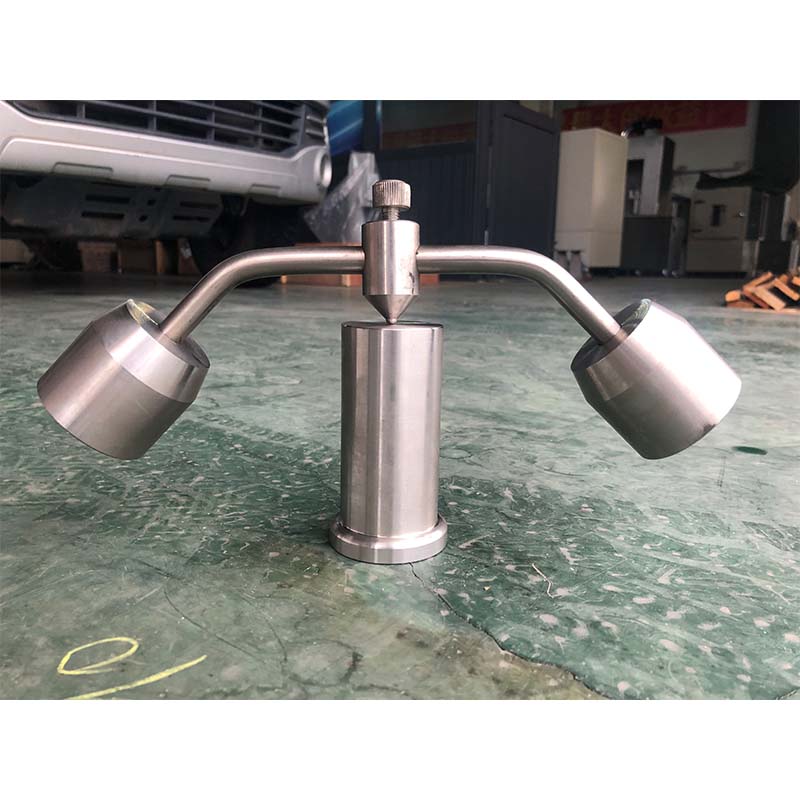universal tensile tester supplier
The Essential Role of Universal Tensile Testers in Material Testing
The importance of material testing cannot be overstated, especially in industries where the reliability and quality of materials are crucial to product performance and safety. Among various testing devices, the universal tensile tester stands out as a fundamental instrument for assessing the mechanical properties of materials. In this article, we will explore the significance of universal tensile testers, their applications, and the importance of selecting a reliable supplier.
Understanding Universal Tensile Testers
Universal tensile testers are versatile machines designed to evaluate the tensile strength, elongation, yield strength, and other critical properties of materials when they are subjected to tensile stress. These testers provide a controlled environment to measure how materials behave under stretching loads until they fracture or yield. The fundamental principle behind tensile testing involves pulling a sample at a constant rate while measuring the force applied and the resulting deformation.
Universal tensile testers can cater to a wide range of materials, including metals, plastics, rubber, textiles, and composites, making them invaluable across multiple industries. They are equipped with advanced features such as digital load cells, extensometers, and data acquisition systems, allowing for precise measurements and comprehensive analysis of material performance.
Applications Across Industries
Universal tensile testers find applications in an array of industries, including automotive, aerospace, construction, packaging, and textiles. For instance
1. Automotive Industry In the automotive sector, materials are subjected to rigid safety standards. Universal tensile testers help ensure that components can withstand the stresses and strains they will encounter during use, contributing to overall vehicle safety.
2. Aerospace The aerospace industry demands materials that can endure extreme conditions. Tensile testing helps verify that materials used in aircraft and spacecraft comply with stringent regulations and performance criteria.
3. Construction In construction, the strength and durability of materials like concrete and steel are paramount. Universal tensile testers assess these properties to confirm that they meet safety and performance standards.
4. Textiles Tensile testing is crucial in the textile industry to evaluate the strength and elasticity of fabrics. This information is essential for ensuring that textiles will perform adequately under various conditions.
universal tensile tester supplier

5. Packaging In packaging, materials must be both strong and lightweight. Tensile testing helps manufacturers develop packaging solutions that protect products while minimizing material usage.
Selecting a Reliable Supplier
When it comes to procuring a universal tensile tester, choosing the right supplier is critical. A reputable supplier should not only provide high-quality equipment but also offer comprehensive support services. Here are key factors to consider when selecting a supplier
1. Experience and Reputation Look for suppliers with a solid track record in the industry. A well-established supplier is likely to have in-depth knowledge of material testing and can offer valuable insights into the right equipment for your needs.
2. Quality and Compliance Ensure that the tensile testers meet international standards and certifications. Equipment that complies with ASTM, ISO, or other relevant standards is essential for accurate and reliable testing.
3. Technical Support and Services A supplier should provide excellent customer service, including installation, calibration, and ongoing maintenance. Access to technical support ensures that any issues can be resolved promptly, minimizing downtime.
4. Customization Options Different industries may require specific features or configurations for tensile testing. A good supplier should offer customizable solutions to meet unique testing requirements.
5. User Training The complexity of modern tensile testers necessitates proper training for operators. Suppliers should offer training programs to ensure that your staff can use the equipment effectively and safely.
Conclusion
Universal tensile testers play a critical role in material testing across various industries, ensuring that materials meet the required standards for safety, performance, and durability. The right supplier can significantly impact the efficiency and accuracy of your testing procedures. By investing in quality testing equipment and establishing a relationship with a reliable supplier, companies can enhance their product development processes, ensure compliance with industry regulations, and ultimately deliver superior products to the market. In a world where quality assurance is vital, universal tensile testers are indispensable tools for achieving excellence in material properties.
-
Why the Conductor Resistance Constant Temperature Measurement Machine Redefines Precision
NewsJun.20,2025
-
Reliable Testing Starts Here: Why the High Insulation Resistance Measuring Instrument Is a Must-Have
NewsJun.20,2025
-
Flexible Cable Flexing Test Equipment: The Precision Standard for Cable Durability and Performance Testing
NewsJun.20,2025
-
Digital Measurement Projector: Precision Visualization for Modern Manufacturing
NewsJun.20,2025
-
Computer Control Electronic Tensile Tester: Precision and Power for the Modern Metal Industry
NewsJun.20,2025
-
Cable Spark Tester: Your Ultimate Insulation Assurance for Wire and Cable Testing
NewsJun.20,2025
 Copyright © 2025 Hebei Fangyuan Instrument & Equipment Co.,Ltd. All Rights Reserved. Sitemap | Privacy Policy
Copyright © 2025 Hebei Fangyuan Instrument & Equipment Co.,Ltd. All Rights Reserved. Sitemap | Privacy Policy
